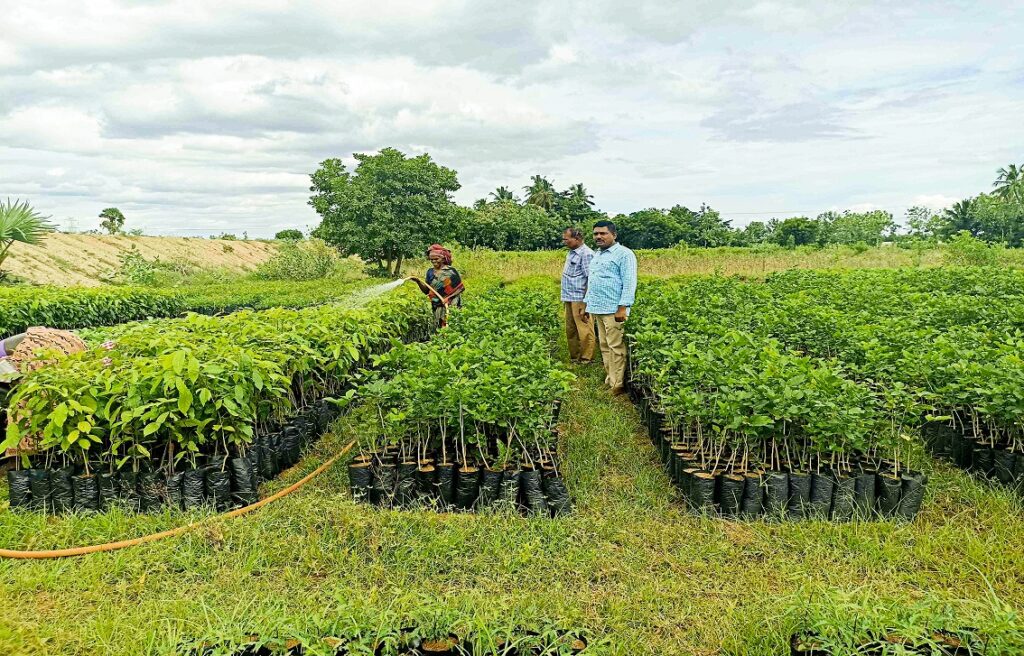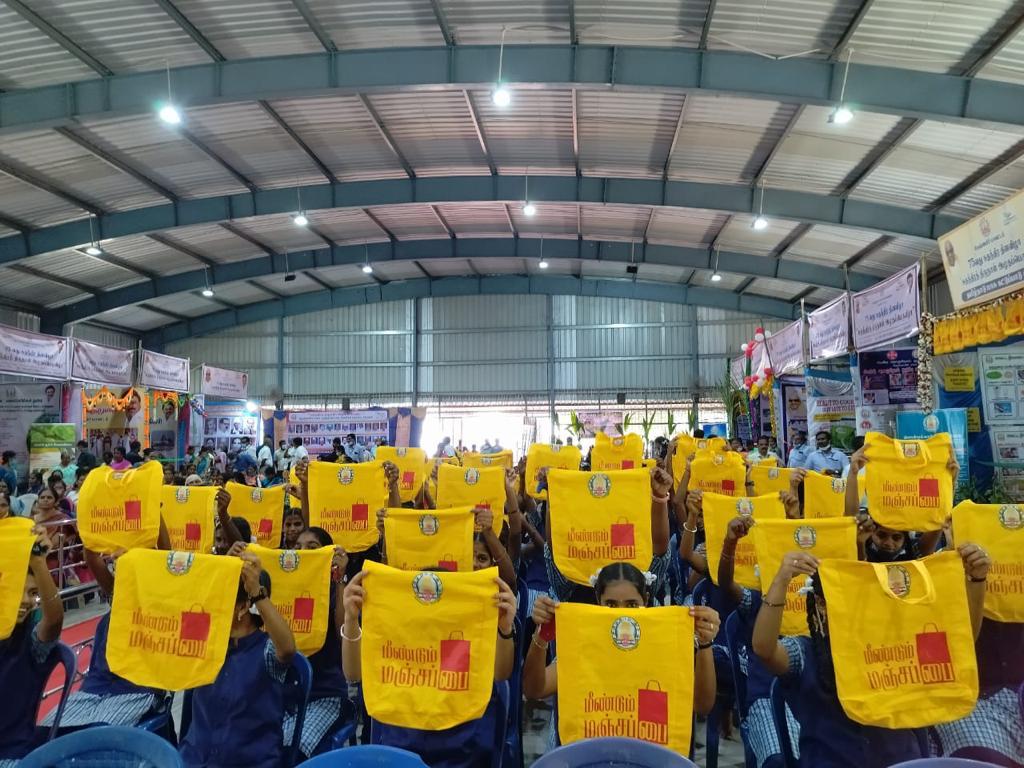Environmental Leadership and Women’s Role in Conservation
Supriya Sahu discusses climate initiatives, biodiversity, and women’s contributions to environmental protection.
During your tenure as the former Additional Chief Secretary of the Tamil Nadu Environment Department, which key developments and programs had an impact and are particularly close to your heart?
My team has worked on many ideas, conceptualized new initiatives, and implemented them. There are two areas where I see the most impact:
We set up India’s first climate company, Tamil Nadu Green Climate Company (TNGCC), which is the first Special Purpose Vehicle, or company, of its kind registered under Section 8 of The Companies Act, 2013 as a non-profit company. We brought together all stakeholder departments on one platform, like the Department of Energy, Transport, Municipal Administration, and Agriculture, with everybody sitting together on the board of this company. The company successfully launched four important missions, all targeted towards climate change: the Climate Change Mission, Green Tamil Nadu Mission, Coastal Rejuvenation/Restoration Mission, and Wetland Mission. Each of these missions also has a very defined agenda. Through a very targeted approach towards climate change initiatives, we set up Climate Change Missions in all the districts of Tamil Nadu headed by the District Collector, and for the first time in the country, we also had the district forest officers designated as climate officers, who received training to build their capacity.
This has become a model whereby many states are trying to see if they could launch similar initiatives.
Another important area of our focus, and where we have made a mark, is biodiversity conservation.
We can see that conversations about climate change and biodiversity conservation are quite intertwined.
These two areas stand out where we were able to contribute and create.
What are some of the challenges policy-makers face when implementing initiatives and programs and what opportunities exist for the interaction between government, civil society, and various stakeholders towards impactful action?
There are many challenges. First, bringing everyone together is not easy because each department has its own goals and agendas. To convince the departments and bring them on board requires a lot of effort and resilience. The good thing is that once they understand the common goal, the larger objective we will achieve, we can bring it all together.
The second challenge is to make sure we have the resources available for the initiatives we started. In order to do the activities in each of these missions, it is very important to have adequate resource allocation and therefore to be able to convince the department to allocate these resources. For example, we had a massive plantation project in the Green Tamil Nadu Mission, where in the last few years we have been able to plant seven crore saplings. To create nurseries, employ people, generate jobs, plant saplings, and look for the land where the saplings can be planted requires a lot of planning, training, and capacity building.

I truly believe that we had a strong political commitment, a committed and efficient bureaucracy able to roll the ideas into action, and a strong civil society. We have a governing council headed by the Honorable Chief Minister of Tamil Nadu, M.K. Stalin, on climate change. The Governing Council on Climate Change also has eminent people across diverse fields including prominent scientists, industrialists, policy-makers, and social activists. We were able to successfully get over many challenges because of good and involved partnerships.
You have often highlighted the powerful role women and marginalized communities can play in promoting health, the environment, conservation, and action. Could you share some initiatives driven by women and marginalized communities?
I would like to highlight two important initiatives: the first is the people’s project towards the banning and elimination of Single-Use Plastics (SUPs). The campaign called Meendum Manjappai (Once Again Yellow Bags), is to bring back the yellow cotton bags that have been used in Tamil Nadu for generations and is an identity for the people of Tamil Nadu. We initiated this campaign, which was spearheaded by women, to bring back the eco-friendly culture of the people of Tamil Nadu and make it part of their lives once again. The campaign also involved the manufacturing and stitching of these yellow bags which involved many women Self-Help Groups (SHGs) in the stitching of the bags and distributing them across the state. SHGs have been passionate advocates for environmental protection. This is a massive campaign that is still going strong and has resulted in various enforcement activities where we ensure that traders do not use SUP bags.

Second is the Green Tamil Nadu Mission, where women have played a crucial role in the raising of nurseries, especially mangrove nurseries and other plants. This would not have been possible without the involvement of local women in large numbers, and it also provided them with employment opportunities. Women, with their care and compassion, have nurtured these saplings and as a result, the Green Tamil Nadu Mission has taken shape in every little corner of Tamil Nadu. We have mangrove nurseries in two places, Ennore and Cuddalore, where mangroves have come up very well and women have played a critical role.
Lastly, what are your hopes and aspirations for the health, environment, and climate of Tamil Nadu and the nation?
Now that I have been in the health department for the past month, I have been able to see a very close link between health and the environment.
This link can also be seen through the One Health approach that is being promoted by the World Health Organization, several UN organizations, and the Government of India. It is something we should be working on in the future.
Everything is so closely connected – the environment, health, air pollution, water pollution, soil pollution, zoonotic diseases, animal welfare, husbandry, health, the environment and climate change, the forest department, and the wildlife wing.
Hence, everybody should work together and work with the data available to them. We should look at what is happening around our environment and come together, sit down, and see to it there are small, green actions from the side of the government involving the local community and people so that situations like COVID do not happen again. In the future, a One Health and one climate change approach should be a strong unified strategy.
